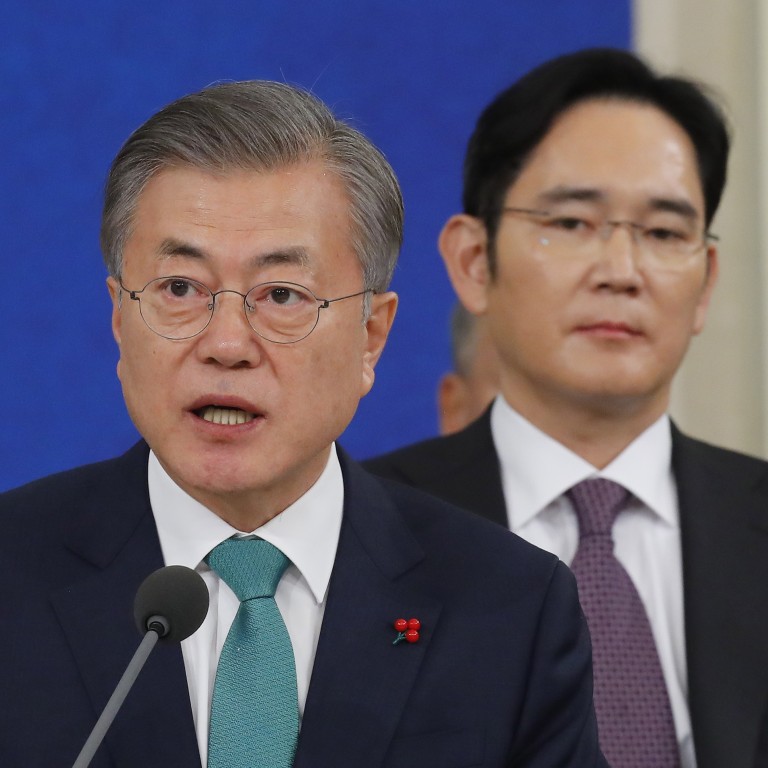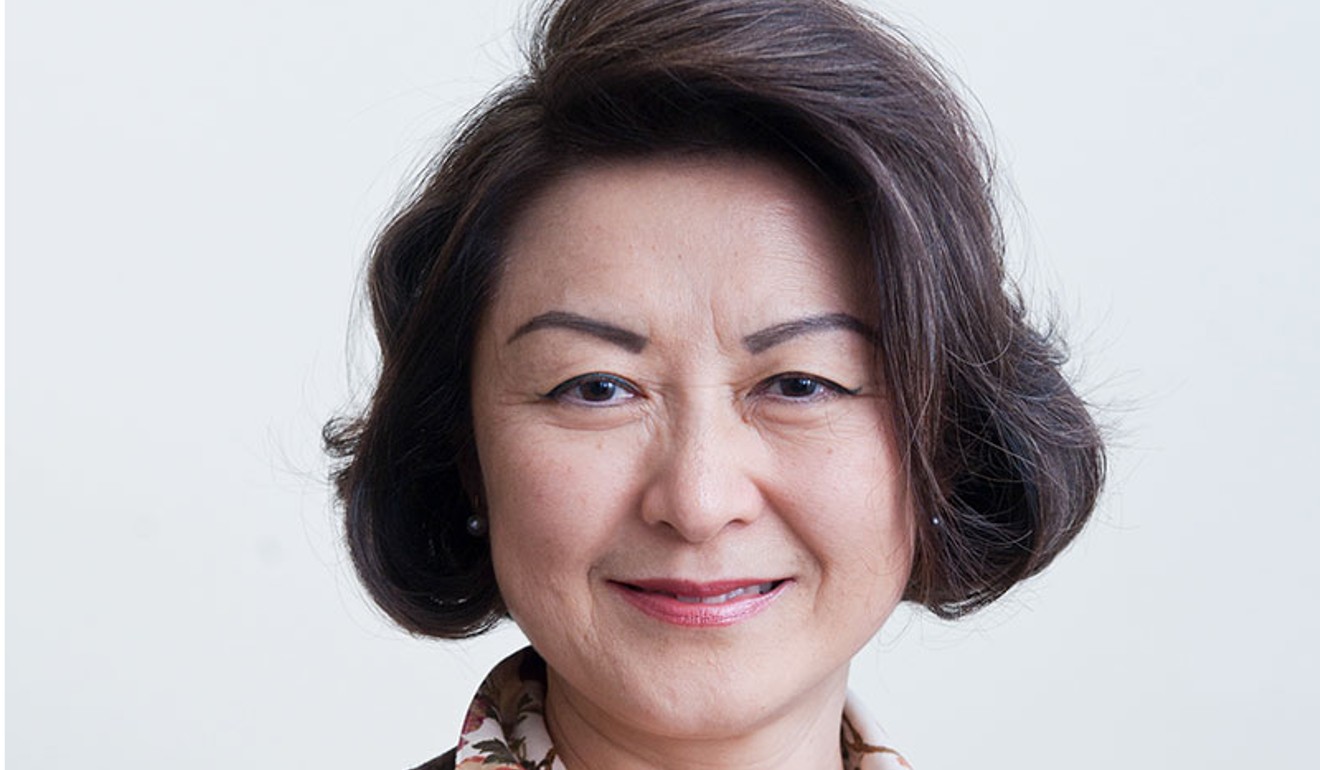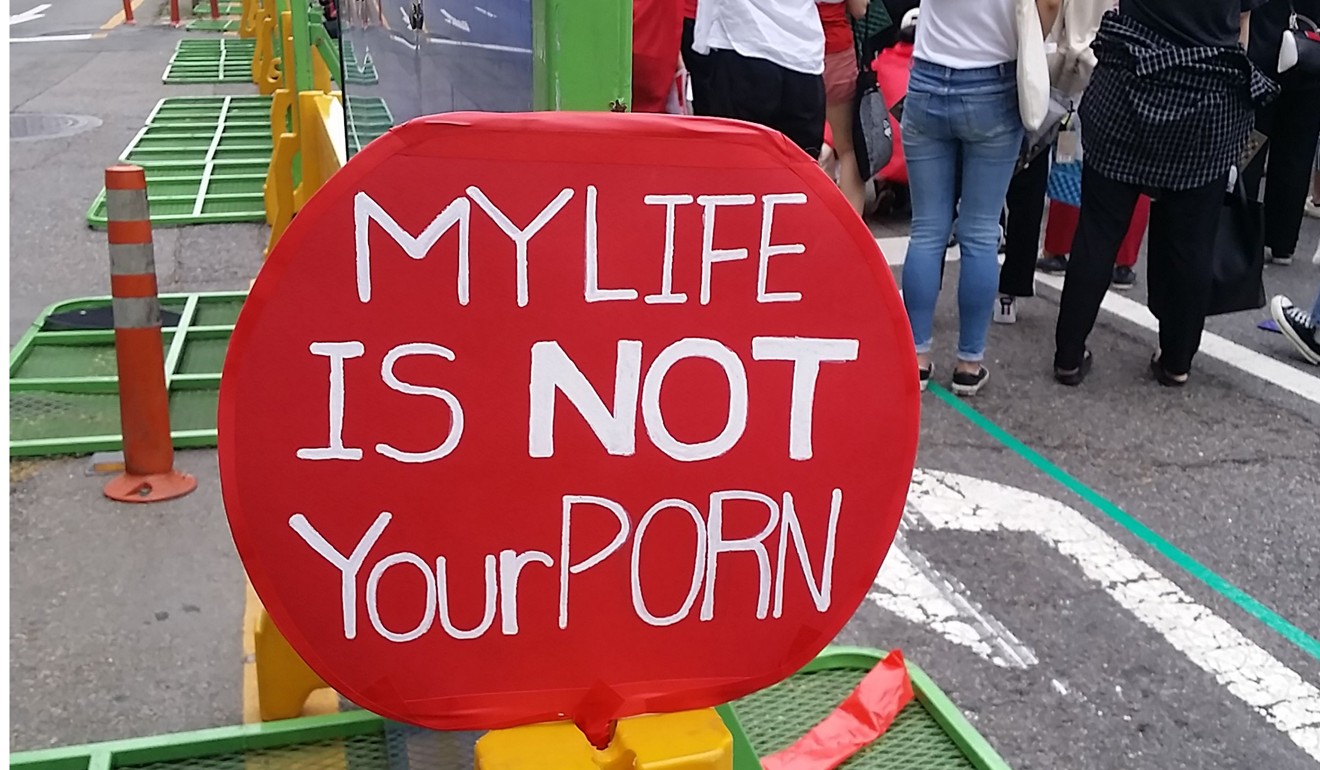
Why has the support for South Korea’s President Moon Jae-in collapsed among young men?
- In a country undergoing a polarising and sometimes vitriolic debate about gender, taking sides only leads to an electoral bludgeoning
But since the election Do’s expectations have soured, and he is far from alone. Although Moon won the youth vote in May 2017, young South Korean men are now abandoning the president in droves and are less satisfied with his performance than any other demographic.

Moon’s plummeting approval rating among younger men, which stood at 87 per cent soon after the election according to research company Gallup Korea, has been linked to a lacklustre jobs market, slowing economy, and his support for feminism in a country that is undergoing a polarising and sometimes vitriolic debate about gender.
‘My life is not your porn’: South Korea women fight back against hidden-camera sex crimes
South Korea ranked 115 in the World Economic Forum’s Global Gender Gap Report 2018 – largely because of the gulf in average pay between the sexes and a lack of women in senior business roles. In 2017, nine out of 10 women told rights group Womenlink that they did not feel they were treated as men’s equals.
Yet despite the rampant inequality, feminism remains a dirty word for many – especially men.

“To the larger general public, it is usually something negative, unfortunately,” said Seung-sook Moon, a female professor of sociology at Vassar College in New York who was born and raised in South Korea. “My own sister, who is actually highly educated and a professional woman, doesn’t like feminism. Even though she is a feminist in my view.”
South Koreans’ perceptions of feminism are starkly divided along gender lines. In a survey of 1,018 people carried out by Realmeter in December, just 14 per cent of men in their 20s said they supported feminism, compared with 64 per cent of their female peers.
No girls allowed: South Korea’s male-dominated corporate culture and sexist recruitment policies
Still the president, who is a former human rights lawyer, has described himself as a feminist and promised to make gender equality in government and business a priority of his administration.
“That doesn’t sit very well with the younger and also older generation of men who have been very much the social majority with a lot of privileges and power,” said Moon, the sociology professor.
For many South Korean men, the country’s feminist movement has become synonymous with double standards and even outright hatred of males.

In November, the rapper San E sparked controversy by releasing the track “Feminist”, in which he criticised women who demanded more rights without volunteering for military service, which is mandatory for men but not women.
Radical feminist forums such as Megalia and Womad, meanwhile, have provoked anger with their incendiary rhetoric, including jibes about the size of Korean men’s genitals and calls for women to abort any fetus that is male.
How turbulence at Korean Air became a rallying call for equality
“Generalising all men as hannam-chung is really absurd,” said Do, referring to a slang term used online to liken Korean men to insects. “It’s so absurd that I’m lost for words. It doesn’t make any sense.”
With a battle of the sexes raging online, 56 per cent of South Koreans aged 19 to 29 named conflict between the genders as the most severe clash of opinions affecting society in another Realmeter opinion poll of 1,018 people in December.

“Men have been comfortable with traditional arrangements in marriage and the workplace, and now women are really raising questions and they are not really taking all the inequalities as a fact of life,” said Moon, the sociology professor.
“So I think that’s the reason why the social conflict between men and women as social groups has become very sharpened.”
South Korea’s new solution to plummeting birth rates? Respect for women
The president, whose overall approval rating hovers below 50 per cent, has talked down the role that gender conflict plays in his flagging support among young men, and concedes that he should communicate better with the youth of South Korea to give them more hope for the future.
“I believe that society can advance in a mature direction as we experience these conflicts,” he told a press conference earlier this month.
But as far as many young men are concerned, the president shouldn’t be taking sides.
“He should be more actively involved in the conflict between the sexes and try to find a middle ground where the sexes can come to an understanding,” Do said.

